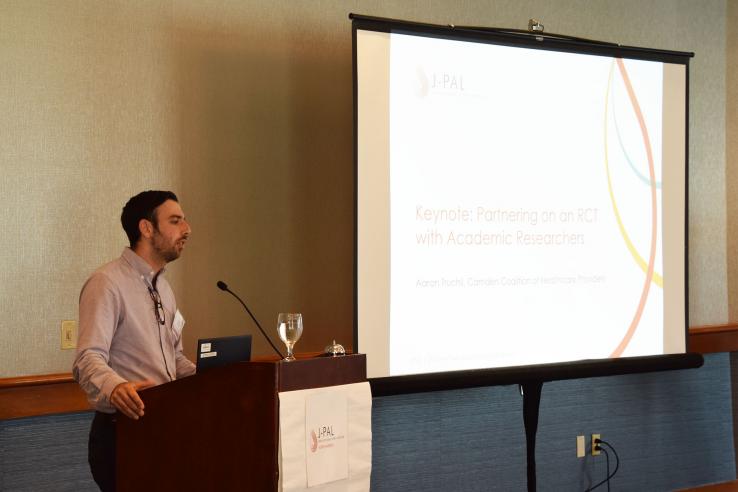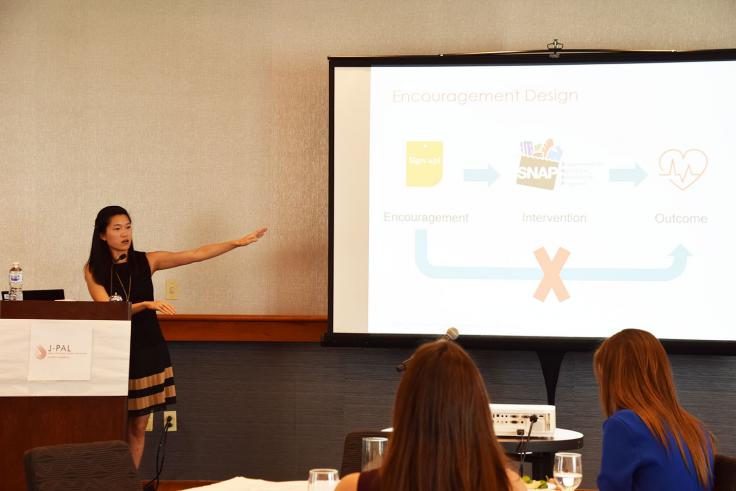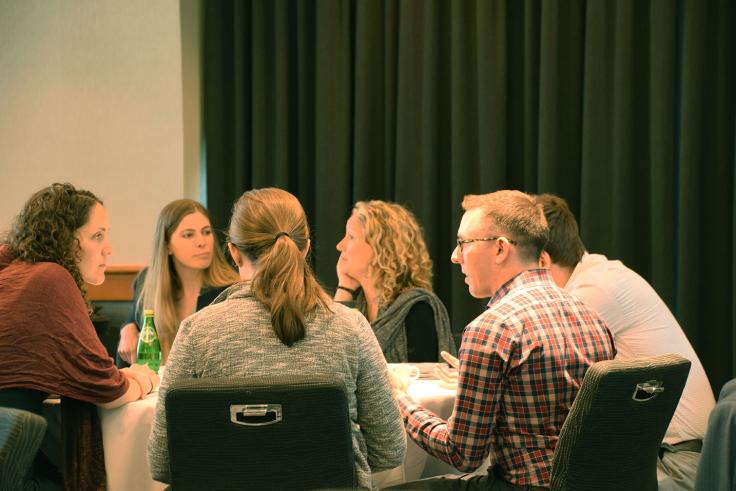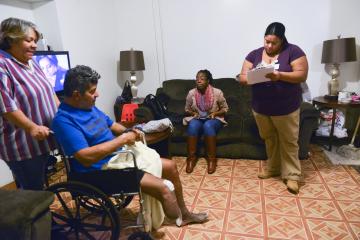Cultivating partnerships between health care practitioners and researchers

“Trust and communication lay the foundation for a good working relationship,” shared Aaron Truchil of Camden Coalition of Health Care Providers (CCHP) with over 40 audience members, including academics and innovators in health care delivery.
Truchil’s keynote address—referencing his organization’s partnership with J-PAL affiliated researchers to evaluate CCHP’s care management program—kicked off this year’s Health Care Delivery Initiative (HCDI) workshop.
The workshop brought together researchers and health care practitioners to strengthen their working knowledge of randomized evaluations and lay a foundation for developing the type of strong research partnerships Aaron described in his keynote.
Participants included the four finalists of J-PAL North America’s US Health Care Delivery Innovation Competition, who are interested in rigorously evaluating their programs that address the social determinants of health.
Building knowledge of running randomized evaluations in the real world

Following Truchil’s keynote, attendees engaged in three interactive workshops tailored to open questions raised by Innovation Competition finalists, ranging from refining their research questions to strategizing different ways to design a study to best analyze a program’s impact.
“I learned a lot about randomization beyond how we were thinking about it before,” said Erika Ferguson of the North Carolina Department of Health and Human Services, an Innovation Competition finalist.
Participants then heard from three researchers—J-PAL affiliates Rebecca Dizon-Ross (University of Chicago) and Wes Yin (University of California, Los Angeles), as well as Marika Cabral (University of Texas, Austin)—in a candid Q&A conversation on designing and executing a successful randomized evaluation.
This included hearing their perspectives on the power of randomized evaluations, as seen in Dizon-Ross’ answer:
Karis Grounds from 2-1-1 San Diego, another Innovation Competition finalist, agreed, adding “We know RCTs [randomized controlled trials] are so important, and we learned how to communicate with different audiences—from social service providers, health providers, to researchers—to make that case.”
Laying foundations for strong research partnerships
The researcher panel set the stage for the next day’s conversations, where Innovation Competition finalists met with researchers to introduce their programs and discuss possible research designs in greater detail.

Throughout the conversations, Dizon-Ross’s words about impact evaluation rang true: tweaks in study design discussed in these conversations are about more than just methodology; they help answer fundamental questions that will ultimately improve people’s lives.

Mark Schweyer of California Health & Wellness, who is partnering with Innovation Competition finalist MedZed, said of the conversations, “Collaborations and partnerships are paramount. We couldn’t have been able to get much farther [in our research design] without everyone’s help in the room.”
The event didn’t end with the closing remarks. In the coming months, Innovation Competition finalists will work with J-PAL staff to develop their research proposals further and continue conversations with researchers. Competition finalists and partnered researchers from J-PAL’s network can then jointly apply for evaluation funding.
As participant Noah Pearce of Aurora Health Care noted, “We just couldn’t have done this over the phone.”


